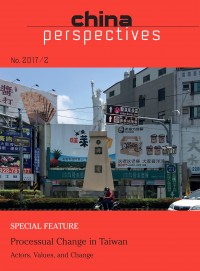
“The January 2016 election, ending in victory for the Taiwan nativist parties opposed to unification with China, gave the latter an absolute legislative majority. They wasted no time in ushering in a series of new laws and policies, some announced before the first meeting of the house in February, and others detailed by the president in her inauguration speech in May (…).These efforts to combine social justice, transitional justice, economic dynamism, and the unlocking of the island’s geopolitical deadlock have launched Taiwan on a path of rapid reform. But how do we evaluate such changes? And what does change mean? The changes briefly described above are seen only through what may appear, at first glance, to be their main political and administrative actors: the presidency, the administration, and the legislature. Such is the view of institutionalism, and this type of analysis forgets what is perhaps the biggest part of the picture: the multitude of actors within the state apparatus, next to it, and engaged in cooperation with it, or outside of it and in opposition to, if not in conflict with it, that all played a role in the ultimate adoption of new policies. It is all the more important to remember that civil society actors have proved very active since Taiwan’s democratisation period (…). Processual Change in Taiwan discusses four case studies analysing as I did above the role played by actors in processes of change in Taiwan: the definition of the contested nation in tourist souvenirs by private operators addressing tourists’ needs (Adina Zemanek), how netizens have tried to prevent policies by local governments regarding the invention of a cultural tradition with which they did not identify (Fiorella Bourgeois), the question of transitional justice and how the authoritarian past is discussed today in Taiwan by a variety of actors such as victims, associations, and the state (Vladimir Stolojan), and how a powerful business magnate and civil society militants confronted each other over the question of media independence in a context of China’s growing influence over Taiwan under the Presidency of Ma (Lin and Lee).”
– Editorial, Stéphane Corcuff

